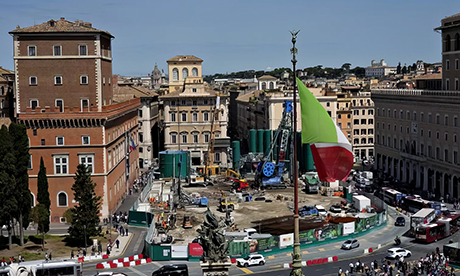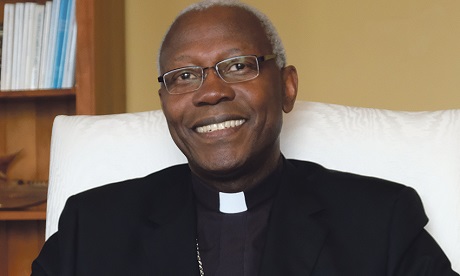Do you remember the Great Jubilee of the Year 2000? Did it make any difference in your life at the time? Has it had any lasting impact on your life and faith?
Preparation for the Great Jubilee began on Nov. 10, 1994, when Pope John Paul II issued his apostolic letter Tertio Millennio Adveniente (As the Third Millennium Approaches).
With the exception of businesses in Rome that expected an increase in tourism, the chief response at the time seemed to be among bishops.
During the years leading up to the celebration, every time a bishop or bishops’ conference issued a statement, no matter how unimportant or what the matter, the final words were invariably a reference to the approaching Great Jubilee. Then, when the first year of the new millennium arrived (12 months early, in fact) all such statements expressed joy at the blessing.
And then it was over.
In fact, however, at the time people were more attentive to the Y2K threat that computer programs using only the final two digits of dates would be unable to distinguish between the 20th and 21st centuries and would thus wreak havoc on infrastructure, economies and businesses.
Happily, Y2K had no more impact than the Great Jubilee.
Even pastors and preachers seldom advertise papal or episcopal statements
Such is the usual fate of papal or episcopal documents, projects and exhortations. They become closing paragraphs of other documents, projects and exhortations until a new set comes along.
That probably does not disturb their authors; there is little evidence that they expect their proclamations to be read, let alone become guides for action.
Were it otherwise, they would write in words that people can understand. They would write succinctly. And they would do all in their power to ensure the dissemination of their message. They do none of those things, apparently thinking that publication is sufficient fulfilment of their ministry.
Even pastors and preachers seldom advertise papal or episcopal statements. In most cases, that is probably just as well, since the People of God have more important tasks than poring over turgid and irrelevant tomes.
Unfortunately, the result is that when a truly important document is published, there is no audience waiting for it, nor is there a system in place to disseminate it.
Such has been the case with the pronouncements of Pope Francis, starting with his apostolic exhortation Evangelii Gaudium in 2013.
Perhaps the worst case of this, bordering on the tragic, has been the 2015 encyclical Laudato si’.
Seven years ago, Pope Francis tried to bring the faith and hope of the Church to bear on the ecological crisis being endured by the Earth and every creature on it, including ourselves. He spoke of this planet as “our common home” and called for a deeper communion among us that cares for the world that is God’s, not ours.
At the time, there was a flutter of response, but for the most part, the encyclical and its message have been relegated to the “final paragraph” category.
By now, we should be doing a better job of communication
Japan’s bishops have tried to keep alive a commitment to the message, but the age-old lack of vehicles for effective dissemination even after translation has made Laudato si’ little more than a motto.
I am not aware, for example, of sermons or educational programs meant to turn the Catholics of Japan into activists for the protection and restoration of the environment.
The Vatican’s Dicastery for Promoting Integral Human Development sponsors the Laudato Si’ Action Platform, “a space for institutions, communities and families to learn and grow together as we journey towards full sustainability in the holistic spirit of integral ecology.”
Have you joined it? Have you even heard of it?
The sole reason the Church exists is to communicate the Good News of God’s forgiving love incarnate in Jesus Christ. By now, we should be doing a better job of communication.
But that is not the case with the Gospel nor even with messages intended to express Gospel faith today.
The world is probably already beyond crisis where the environment is concerned. Wildfires, floods, ice melt, deforestation, air and water pollution, sea rise, extinction, uglification, poverty — we have passed the crisis stage into disaster.
Making the message of Laudato si’ the basis for a Christian response to the disaster is essential to maintaining the Church as a voice that can offer words of hope.
As the situation worsens — and it shall — the world will need that voice more and more. But, unless we get the message of Laudato si’ spread throughout the Church, that voice will grow ever fainter.
The ecological crisis is the greatest crisis facing humanity today.
Responding to it is not simply an optional activity for activists: it is the new vocation of the entire Church. If we simply make Laudato si’ a couple of words at the end of picayune pronouncements, the Church will have failed one of the greatest tests in our history.
In that case, we will deserve to be rejected by the world — and even God.
- William Grimm is a missioner and presbyter in Tokyo and is the publisher of the UCANews.com.
News category: Analysis and Comment, Great reads.







